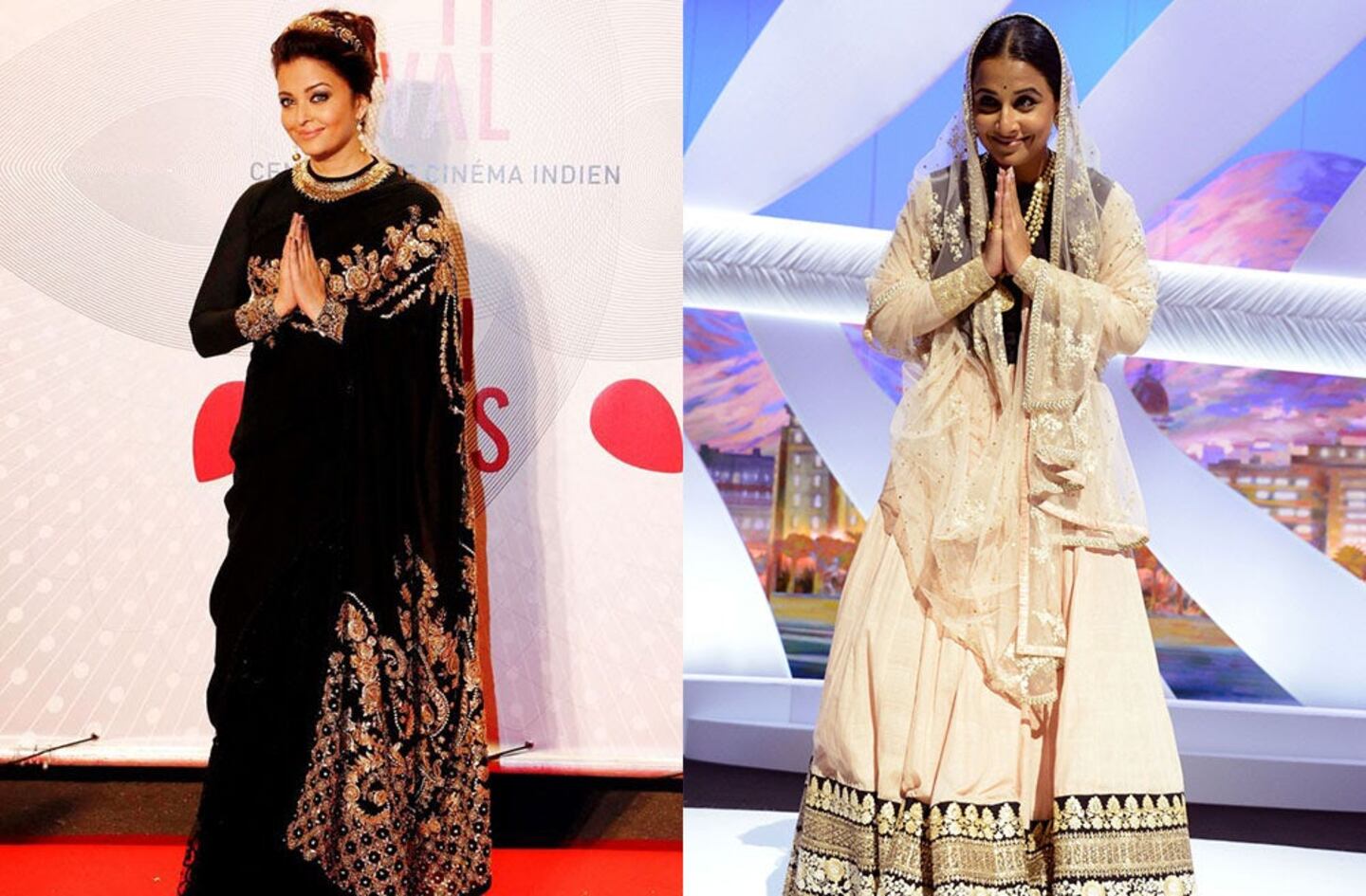
The Business of Fashion
Agenda-setting intelligence, analysis and advice for the global fashion community.

Agenda-setting intelligence, analysis and advice for the global fashion community.

CANNES, France — I was recently in Monaco for the Dior cruise show and decided to drive to the Cannes Film Festival on a particularly cold day (whatever happened to the legendary balminess of the South of France?). I drove down the Croisette (more backpackers than beau monde) and soaked in the rhapsody of frills and frocks on the red carpet. This year, more intently than ever before, I followed what the Indian actresses were wearing. The festival was, after all, saluting 100 years of Indian cinema — more than just Bollywood, as demonstrated in the riveting film "Bombay Talkies," a jamboree of four short films that peeks into the real India in all it's sensational complexity. Besides, we had a top Indian actress, Vidya Balan, in the coveted role of festival jury member.
The fact that India is one of the largest movie-producing countries in the world, with one of the biggest movie-going populations, makes it a sought-after source of new revenue for international cinema. Besides, the rising profile of the country’s film-industry muscle power — Indian industrialist Anil Ambani and Steven Spielberg’s Reliance-DreamWorks produced the magnum opus “Lincoln,” while the leading actors of the Bollywood blockbuster “My Name is Khan,” sold to Fox Star Studios for a record $21 million, rang the opening bell at the NASDAQ stock exchange — all made India’s presence in Cannes even more conspicuous. So, I thought, yes, it’s time our folks strut their stuff on the red carpet — with a modern twist.
So when the star Vidya Balan faced the camera for a photo-op with her co-jury members looking like a subservient bride, a caricature of those notoriously big fat Indian weddings, there was collective disillusionment and ridicule.
Right now, in India, we are gagging for an overhaul in the way women are represented in the media. In a country still reeling from an unbroken stream of rape and other forms of violence against women, the gaping reality of gender inequality and the stereotyping of woman has taken centre stage. The idea of a woman being covetable because she looks servile continues to sit in our collective psyche and is regurgitated again and again in our popular culture. The last thing we, the emancipated, modern, opinionated women of this country (of which there are plenty) wanted to see on the global red carpet of Cannes was a demure Indian woman.
ADVERTISEMENT
Indian social media went into a state of frenzy. Online comments were brutal. “Pretty sure that the jewel thief in Cannes is Vidya Balan's nose,” read one comment. “Costume catastrophe in Cannes,” screamed another. The newspapers mocked and scoffed every morning as more and more Indian stereotypes walked the red carpet.
If anything, this demonstrates the power of fashion and how intrinsically it is related to our sense of identity. This particular red carpet moment signaled our readiness to ask a much-needed question: what is the identity of the modern Indian woman? And by extension, what is the cultural identity of a progressive India? By what we wear, are we espousing archaic stereotypes or are we championing our cultural identity? One of India’s top designers, Sabyasachi, who dressed Balan, certainly seemed to think so when he announced in the media: “We are looking forward to bringing back what India truly stands for.” But by whose standards?
Even with India’s political independence and enviable economic growth, the country seems to have a niggling sense of self-doubt and, dare I say, lack of self-worth. Globalisation is good and unstoppable. But with it comes a litany of psychoses, some real and some imagined: fear of global imperialism, fear of losing cultural identity and uniqueness, especially amongst less powerful countries. I wonder if we, as a nation, are still suffering from a case of post-colonial blues.
In a country like mine, still straddling two intensely opposing worlds, one tied to archaic reasoning, the other catapulting forward without a conscience, it’s crucial that we hold up a mirror to our society and reflect at every opportunity, especially when it comes to how we are portraying ourselves in the arena of entertainment, which thrives on building and breaking images.
Finally, I’ll let you in on a cruel irony that really prompted this piece: Vidya Balan, in reality, is an incredibly progressive and emancipated woman. But the image of her cowing down to a male gaze — in faux bridal finery — did great disservice to her and to us, the women of India.
Image-makers of India. Beware.
This week’s round-up of global markets fashion business news also features Latin American mall giants, Nigerian craft entrepreneurs and the mixed picture of China’s luxury market.
Resourceful leaders are turning to creative contingency plans in the face of a national energy crisis, crumbling infrastructure, economic stagnation and social unrest.
This week’s round-up of global markets fashion business news also features the China Duty Free Group, Uniqlo’s Japanese owner and a pan-African e-commerce platform in Côte d’Ivoire.
Affluent members of the Indian diaspora are underserved by fashion retailers, but dedicated e-commerce sites are not a silver bullet for Indian designers aiming to reach them.